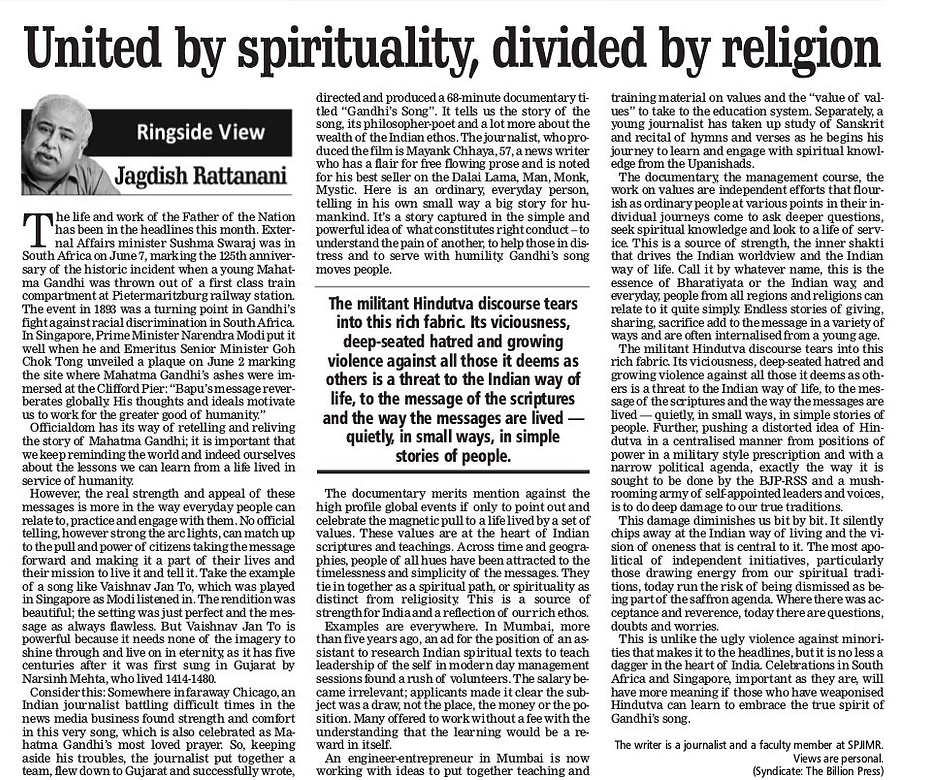Curiosity killed the cat but did not kill the cat.
Mayank Chhaya
'Gandhi's Song' is a feature-length documentary about the life and times of Narsinh Mehta, one of the world's great poet-philosophers who lived in India in the 15th century.
Although he wrote hundreds of songs, verses and ballads with great poetic and philosophical depth, he remains forever defined by a single song 'Vaishnav Jan To'. Over four centuries after he wrote it, the song became Mohandas Gandhi's lifelong moral compass and directly influenced India's great freedom campaign against the British imperial rule.
By most scholarly accounts, Gandhi first incorporated the song in his daily spiritual routine sometime in 1907. In a rare case of the Bhakti movement poets, Mehta, an obsessive lifelong Krishna devotee, excelled both at “Saguna” and Nirguna” forms of poetry. Widely believed to be unlettered, his language was of a very high literary order and set in a way that whatever he wrote could be sung. What is remarkable about ‘Vaishnav Jan’, something that Gandhi understood and imbibed, is that the song is a remarkably secular and non-denominational benchmark for righteous human conduct.
Interestingly, 'The Collected Works of Mahatma Gandhi' make their first reference to a verse from another immortal song by Mehta, "Akhil Bhramand Ma Ek Tu Shri Hari' (You are the one in the entire universe). In that song Mehta, in keeping with his obsession with the formless essence of the universe in the latter part of his poetic life, writes, "Ghat Ghadiya Pachhi Nam Rup Jujva, Antey To Hem Nu Hem Hoye" (We may shape different ornaments from it but in the end gold is just gold). Gandhi makes a specific reference to it in Volume 7 (June 15, 1907--December 12, 1907). "Gold will always be gold, though it takes on different names when it is made into ornaments" is Gandhi's translation.


